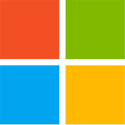Monday, August 30th 2021

Microsoft to Ban Unsupported Machines from Windows 11 Updates
With pre-release builds of Microsoft's upcoming operating system, Windows 11, doing rounds, the PC enthusiast community has developed various workarounds to the system requirement of a hardware trusted-platform module 2.0 (TPM 2.0) for the operating system. Microsoft itself also suggested that those on older machines (without TPMs), who cannot upgrade from Windows 10 to Windows 11, have the option of performing a clean-installation of the new operating system using its ISO installer disk image.
These machines, however, will be treated as "unsupported," will not have access to Windows Update, and may potentially be barred from receiving important security updates. Microsoft recommends, however, that those who don't meet the system requirements of Windows 11 remain on Windows 10. The company plans to maintain support for Windows 10 up to October 14, 2025, which means four more years of security updates for the older operating system. The choice, hence, would be between upgrading hardware to meet Windows 11 requirements, or to remain on Windows 10 until Q4-2025.
Source:
HotHardware
These machines, however, will be treated as "unsupported," will not have access to Windows Update, and may potentially be barred from receiving important security updates. Microsoft recommends, however, that those who don't meet the system requirements of Windows 11 remain on Windows 10. The company plans to maintain support for Windows 10 up to October 14, 2025, which means four more years of security updates for the older operating system. The choice, hence, would be between upgrading hardware to meet Windows 11 requirements, or to remain on Windows 10 until Q4-2025.

125 Comments on Microsoft to Ban Unsupported Machines from Windows 11 Updates
My Dell Latitude E7470 got like a 6th gen i5 and earlier this year Dell upgraded the TPM module via firmware to be 2.0 which was nice but again maybe "The Verge" as @londiste says has misunderstood something because they are famous for even their bad computer building video :roll:
It's simple: I will never let software companies force me to use my hardware or purchase a new one at their discretion just because they need more money.
So the question is what are they really aiming to achieve with these bizarre and outright idiotic claims ?
Of course, if you want to run it on a potato, do so. Don't complain about potato performance later, though.Not sure about DIY land, because it's DIY land. But on OEM land, maybe they have pushed them into a tighter compliance with some specification?
They claim it's for "security" reasons, but that is a smoke-screen. TPM and SecureBoot do little for overall system security, so little that the hacker's of the world are likely laughing their collective asses off at microsoft.Nope! The Core 2 Duo system I've been testing with benchmarks within a reasonable margin of error when compared to Windows 7. So, no, microsoft is either blatantly lying(wouldn't THAT be a shocker) or the feature set that you're referencing has yet to be implemented as of 22k.160. I've not had a chance to test 22k.168 yet, been busy.Oh let's not start that...Once again, what an EULA states and what is lawfully enforceable are different.LOL! Haven't lost one yet.We'll see...
The hardware is apparently determined by the execution mode (which, as other posters have noted, doesnt appear to cause any notable performance drop). If they went with only 10th gen and newer it would cause more uproar over why hardware currently sold (you can still buy 8th gen hardware brand new from dell/HP/ece) doesnt support 11.
The problem is they have a virtual monopoly and think they can get away with anything.
And you speak like the TPM will make all PC's safe, that's absurd. People will still use shitty websites and apps, and there will always be other threats
People are just plain terrified of using linux for the same reason.
Quick side question on Win11 since I haven't followed it too deeply - is it forcing Bitlocker enabled or can we still opt out of drive encryption?